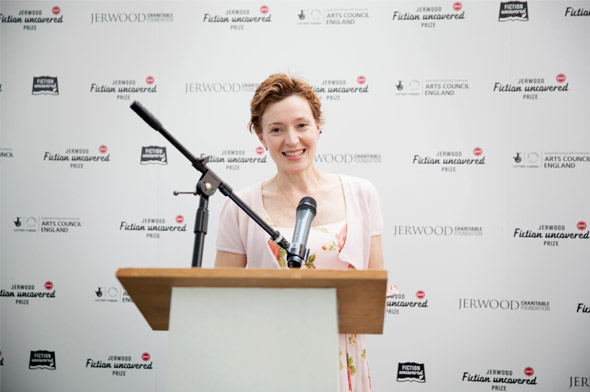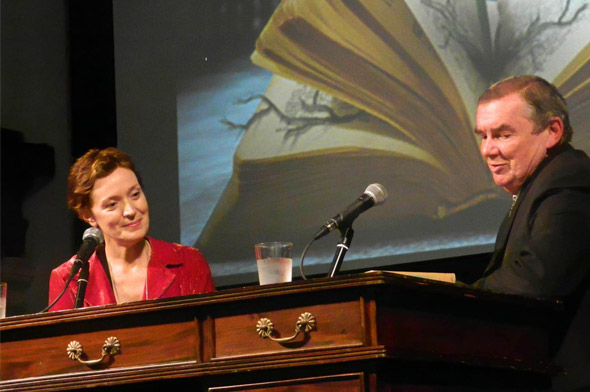About
Carys Davies is the author of two collections of short stories, The Redemption of Galen Pike and Some New Ambush.
She is the winner of the Frank O'Connor International Short Story Prize, the Jerwood Fiction Uncovered Prize, the Royal Society of Literature's V.S. Pritchett Memorial Prize, the Society of Authors' Olive Cook Short Story Award, a Northern Writers’ Award, and is currently a 2016-2017 Cullman Fellow at the New York Public Library.
Born in Wales, she usually lives in north-west England.
Carys Davies reads from her short story Miracle at Hawk's Bay:
Carys Davies reads 'Miracle at Hawk's Bay' from WordFactory on Vimeo.
Cary's Davies in conversation with Rebecca Swirsky:
Visit websiteREQUEST AN INTRODUCTION
Bibliography
Short Story Collections
The Travellers (a ‘collected’ of both the below books), 2015, Text (Australia)
The Redemption of Galen Pike, 2014, Salt
Some New Ambush, 2007, Salt
Individual Short Stories in the following anthologies (most recent):
Head Land: 10 Years Of The Edge Hill Short Story Prize (ed Rodge Glass), forthcoming September 2016, Freight/Edge Hill University Press
Refuge (ed Sam Jordison), 2015, Galley Beggar Press
New Welsh Short Stories (ed Francesca Rhydderch and Penny Thomas), 2015, Seren
Love Loss & the Lives of Women: 100 Great Short Stories
(ed Victoria Hislop), 2013, Head of Zeus
Red Room New Short Stories Inspired by the Brontës (ed A. J. Ashworth), 2013 Unthank
Short Circuit A Guide to the Art of the Short Story [essay] (ed Vanessa Gebbie), 2013 and 2007, Salt
Individual stories in these journals (most recent):
Ploughshares (ed Claire Messud and James Wood Summer), 2016, Emerson College (USA)
The Canary Press (ed Harriet McKnight), Summer 2016 (Australia)
Tierra Adentro (ed unknown), 2016 (Mexico)
Salamander (ed Katie Sticca), 2014 Suffolk University (USA)
The Stinging Fly (ed Thomas Morris), 2014 (Ireland)
The Dublin Review (ed Brendan Barrington), 2013 (Ireland)
Granta New Writing, 2012 (UK)
The Stinging Fly (ed Declan Meade), 2012 (Ireland)
The Royal Society of Literature Review (ed Anthony Gardner), 2012 (UK)
Prospect (ed Bronwen Maddox), 2011 (UK)
Commissions & Articles

This piece by Carys Davies is part of the International Literature Showcase's 'Crossing Borders' series.








